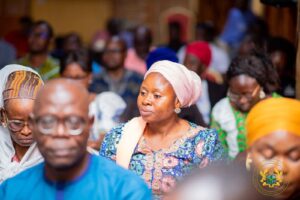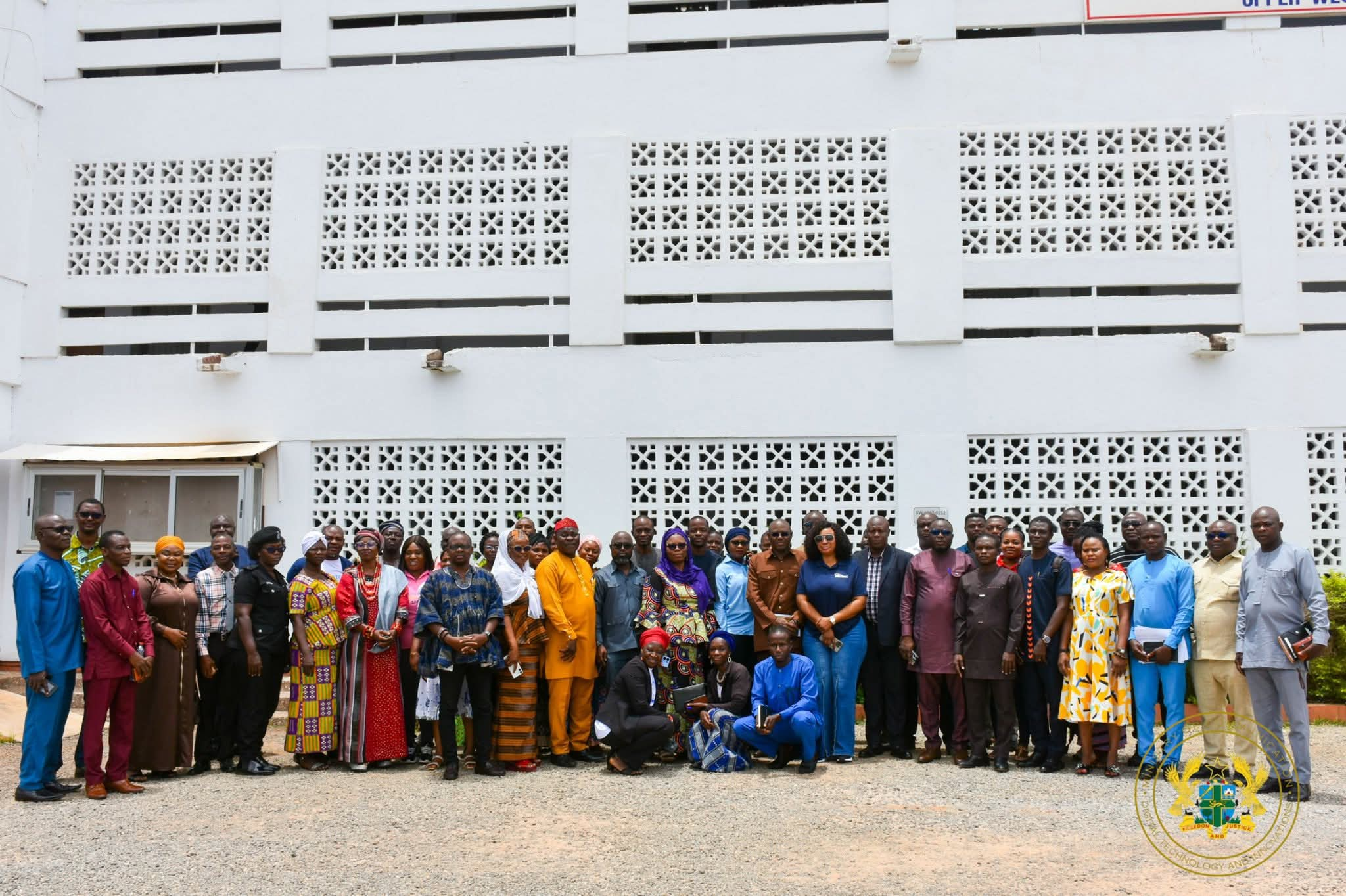adverts
The Ministry of Communication, Digital Technology and Innovations (MOCDTI), in collaboration with the Ghana Investment Fund for Electronic Communications (GIFEC) and the Ghana-India Kofi Annan Centre of Excellence in ICT (GI-KACE), has held an inception meeting in Wa with stakeholders ahead of the 2025 National Girls-in-ICT celebration.
The engagement brought together representatives from the Upper West Regional Coordinating Council, the Regional Directorate of Education, Girl Child Education Officers, Municipal and District Chief Executives (MMDCEs), and Directors of Education from all 11 districts of the region.

adverts
Speaking on behalf of the sector minister, Hon. Samuel Nartey George, the Chief Director of MOCDTI, Mr Alexander Yaw Arphul, reaffirmed the government’s commitment to closing the gender digital divide by equipping young girls with ICT skills.
He noted that the Girls-in-ICT initiative is a central pillar of the Ministry’s broader digital empowerment agenda, alongside flagship projects such as the One Million Coders programme.
“Between 2023 and 2024 alone, 5,000 girls were trained across five regions. This year, our target is to train 3,000 girls in the Volta, Upper West and Savannah Regions, with 1,000 beneficiaries expected from the Upper West Region,” Mr Arphul disclosed.
In a message delivered on his behalf, Upper West Regional Minister, Hon. Charles Lwanga Puozuing Esq., commended the Ministry for selecting the region as a host, stressing that the initiative directly supports the Sustainable Development Goals (SDGs) 4 and 5 on Quality Education and Gender Equality.

“A digital economy that excludes women is incomplete and unsustainable. But a digital economy that empowers girls and young women secures prosperity for all,” he remarked, while urging MMDCEs, educators, parents, traditional leaders, civil society, and the private sector to collaborate in creating a safe, enabling environment for girls in ICT.
Outlining the roadmap for implementation, MOCDTI’s Director of Policy, Planning, Budgeting, Monitoring and Evaluation, Mr Austin Hesse, said the programme will roll out in phases, including training, mentorship, teacher capacity-building, and climax activities.
He explained that the RCC will lead in mobilising district-level support, while the Ghana Education Service (GES) will identify eligible participants and engage teachers. Preparatory activities such as venue inspections, accommodation arrangements, and mentorship planning were also highlighted as crucial.
The Director of Operations at GIFEC, Mr Yahaya Zakaria Osman, reiterated the Fund’s role in expanding ICT access to underserved communities through projects like Rural Telephony. He noted that GIFEC will provide laptops, internet connectivity, and other logistics for the training sessions, as well as award laptops to top-performing participants and establish computer laboratories for the best ten girls.

“These interventions not only sustain the impact of the programme but also serve as long-term community assets benefiting schools and peers,” Mr Osman stated.
This year’s celebration, themed “Girls in ICT for Inclusive Digital Transformation”, will also include capacity-building sessions for teachers to enhance digital literacy instruction in classrooms.


